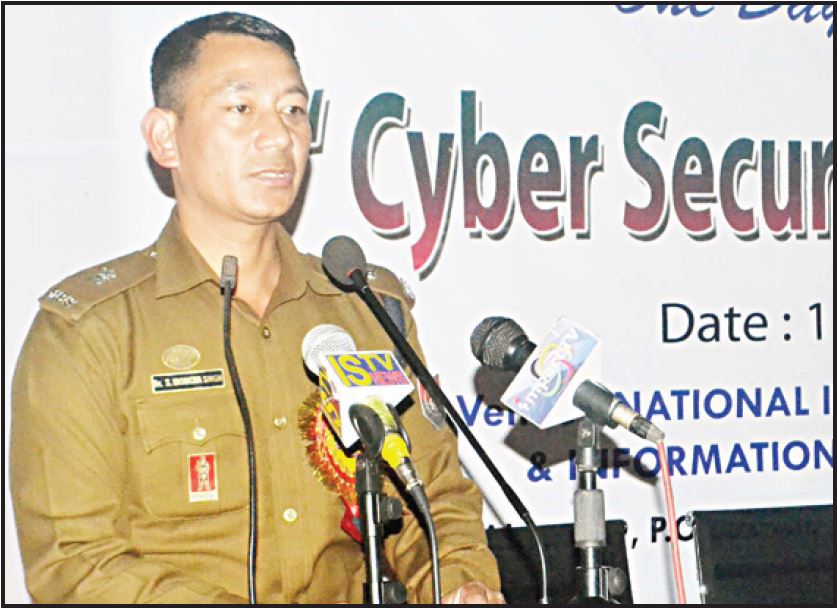 IMPHAL: “If someone keeps a mobile phone without returning to its rightful owner after coming across it then that is also considered as theft”, stated Imphal West additional SP Dr S Ibomcha, who is also in-charge of cyber crime unit of the district, while speaking during a one-day workshop on cyber security organised by National Institute of Electronics & Information Technology(NIELIT), Imphal at its campus on Saturday.
IMPHAL: “If someone keeps a mobile phone without returning to its rightful owner after coming across it then that is also considered as theft”, stated Imphal West additional SP Dr S Ibomcha, who is also in-charge of cyber crime unit of the district, while speaking during a one-day workshop on cyber security organised by National Institute of Electronics & Information Technology(NIELIT), Imphal at its campus on Saturday.
National Informatics Centre’s Manipur state information officer Kh Rajen Singh was chief guest while NIELIT executive director Th Prameshwor Singh presided over the event. Editors’ Guild Manipur president A Mobi Singh and All Manipur Working Journalists’ Union president W Shamjai were guests of honour.
Speaking as a resource person on the profile of cyber criminals in Manipur (age ,sex, IT literacy level, S Ibomcha revealed that most of the cyber crimes occur in Manipur because people are ignorant about cyber crimes.
“Information technology is providing many benefits, but we become victims of cyber crimes due to carelessness and lack of awareness. Information technology is a big ocean,” Ibomcha said, adding people should be vigilant to avoid felling into the clutches of cyber criminals.
“We received many reports of loss of mobile phones. We are tracing the lost mobile phones by collecting call details from service providers and IMEI number,” Ibomcha disclosed, and added that the unit received 244 reports of mobile lost, out of which 170 mobile phones were retrieved.
Most of the cyber crimes in the state occur due to lack of proper cyber knowledge by the male, and many young men uploaded indecent pictures and posted vulgar comments on Facebook about their girlfriends with intentions of getting their wants, he said, adding they also sent nude pictures in new IT applications like WhatsApp, etc.
Girls also send extremely private photos to their boyfriends out of trust due to lack of proper IT knowledge and thus easily becoming victims of cyber crime, he said.
Most of the cyber crime are committed by those between the age group of 17 to 30, Dr Ibomcha said, adding obscene messages are sent mostly by those between 17 and 25 years of age.
Urging the public to stay vigilant, Ibomcha said ‘let us not give the opportunity to commit cyber crimes to criminals’. He also requested people to refrain from accepting friendship requests from strangers and to accept it after finding the exact details of those sending the request.
Calling upon the people not to divulge ATM passwords and bank accounts to anyone, he said they will become easy victims of cyber crime if they do not follow these instructions. Meanwhile, Bishnupur district’s additional SP (Ops) Victoria Yengkhom speaking as resource person on ‘scenario of cyber crime in Manipur’ maintained that people must learned to operate all the applications in smart phones.
Source: The People’s Chronicle



